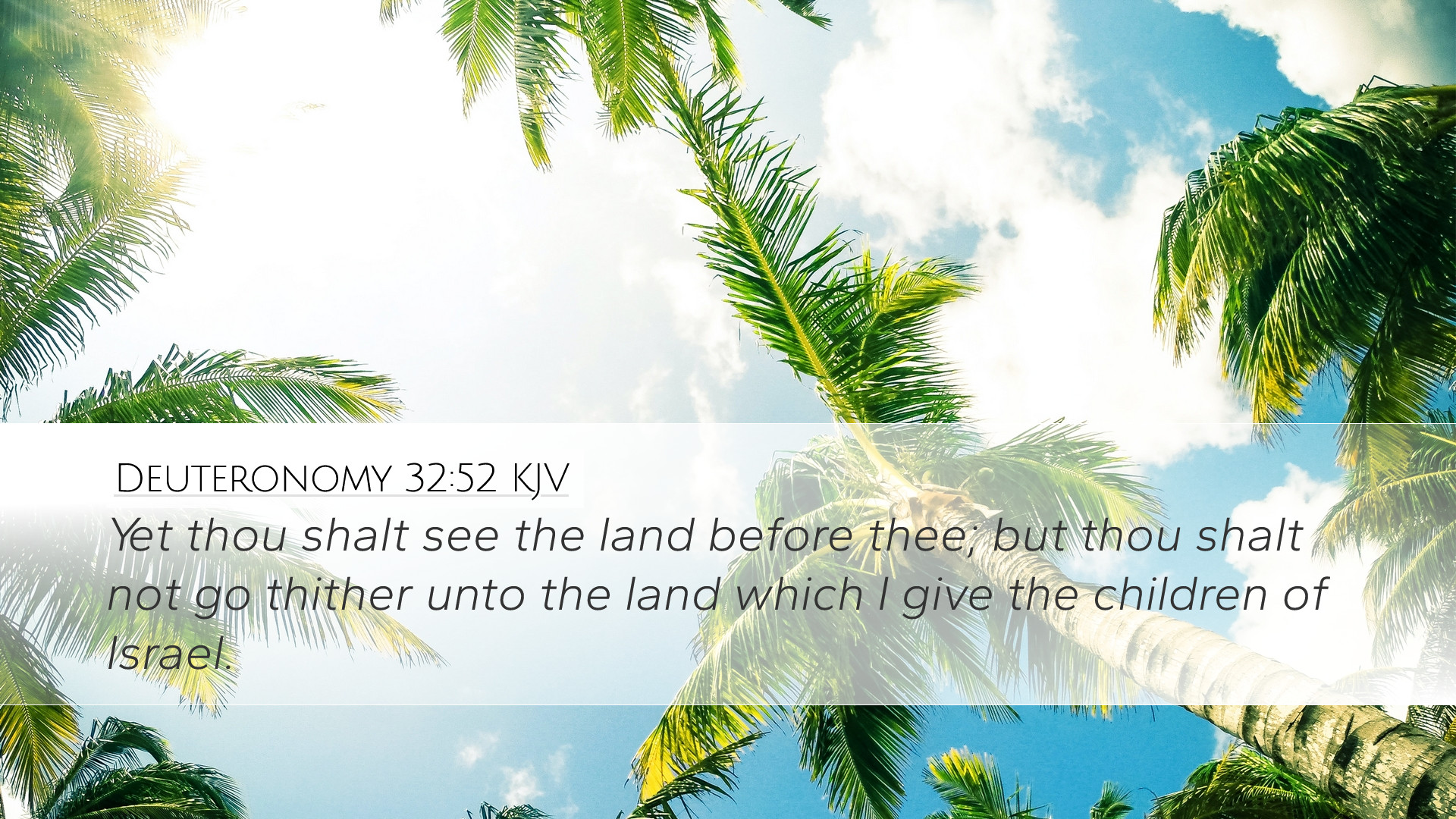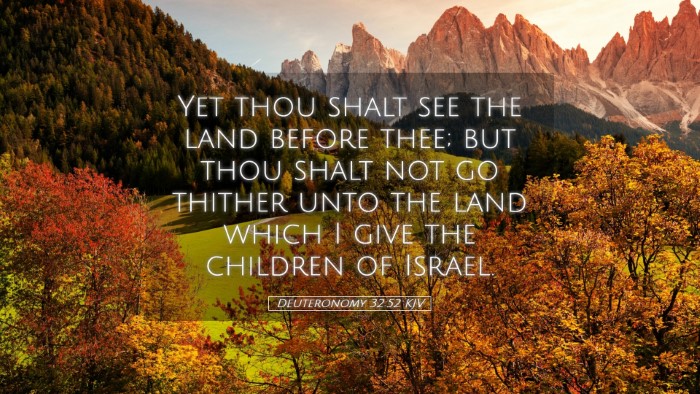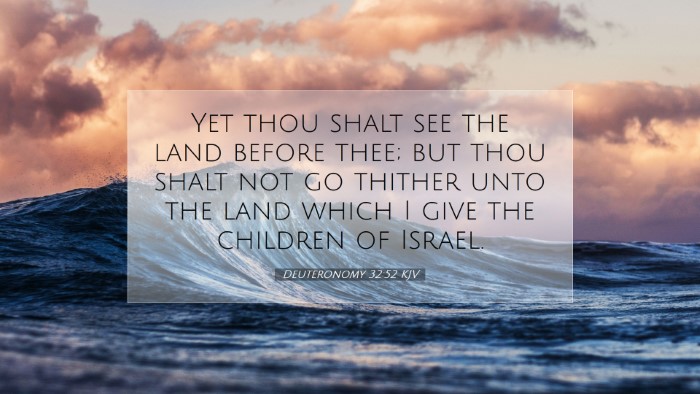Commentary on Deuteronomy 32:52
Verse Text: "Yet thou shalt see the land before thee; but thou shalt not go thither unto the land which I give the children of Israel."
Introduction
The verse under consideration marks a poignant moment in the narrative of the Israelites' journey to the Promised Land. It encapsulates the themes of divine justice, grace, and the consequences of disobedience. The depth of meaning found in Deuteronomy 32:52 invites reflection and understanding from students, pastors, and theologians alike.
Contextual Background
This chapter forms part of Moses' farewell address, where he recounts the faithfulness of God contrasted with Israel's rebellion. The context is critical to understanding the weight of God's words to Moses concerning his impending death and the transition of leadership.
The Character of Moses
Moses, having led the Israelites through the wilderness for forty years, is now facing the bitter consequence of his own failure to uphold God's holiness at Meribah (Numbers 20:12). The commentary from Matthew Henry highlights the servant’s deep longing for the Promised Land despite the forfeiture of that privilege. His life exemplifies the struggle between righteousness and human frailty.
Exegesis of the Verse
The verse expresses a dual tension where Moses is allowed a vision of the promised land yet remains forbidden to step foot in it. Albert Barnes reflects on the mercy shown in God allowing Moses this vision as a reward for his faithful service, symbolizing both the assured fulfillment of God's promises and the stern reality of divine judgment.
The Land Before Thee
The phrase "the land before thee" can be understood as a metaphor for spiritual insight and the vision of God's promises. This is elaborated in Adam Clarke's commentary, which states that although Moses saw the land, his inability to enter it serves as a warning to all leaders and believers regarding the seriousness of obedience and the consequences of sin.
Theological Implications
Deuteronomy 32:52 raises significant theological questions about God's justice and mercy. The balance of these attributes is crucial to the character of God as understood in Judeo-Christian thought. Matthew Henry emphasizes that while God is merciful, He is also just—no one is beyond the reach of divine accountability.
A Lesson in Leadership
This verse serves as a significant lesson for pastors and leaders. Leaders bear a heightened responsibility, and the narrative illustrates that their actions carry weight not only for themselves but also for those they lead. Clarke comments on the importance of maintaining one's integrity, drawing parallels to modern-day leadership within the Church.
Applications for Today
The application of Deuteronomy 32:52 extends into contemporary faith practices. Believers are encouraged to live faithfully, acknowledging their responsibility in the light of God's commandments.
Faithfulness in Service
Pastors and church leaders can draw from this verse to highlight the importance of steadfastness in faith. Albert Barnes encourages contemporary believers to recognize the value of a life lived in obedience to God, citing that true reward comes from faithful service, even in the face of personal losses.
Hope in Vision
Furthermore, while Moses did not enter the Promised Land, he still had the vision of it; this provides hope that faithfulness will be rewarded, even if not in this life. Matthew Henry points out that this vision serves as a type of assurance for believers today who may feel a sense of yearning for God's promises yet experience delays or denials in their fulfillment.
Conclusion
Deuteronomy 32:52 invites readers to reflect on the implications of God's promises, the weight of obedience, and the nature of leadership. Moses’ life and ultimate vision of the Promised Land serve as a profound reminder of the call to integrity in following God's directives while resting in the assurance that God's plans are ultimately good and just.
Final Thoughts
As we meditate on this verse, let us strive to be leaders who embody God's principles, encouraging those around us to seek Him earnestly, knowing that though we may face obstacles, His promises stand firm. The lessons in this text are timeless and resonate across generations, guiding every believer towards the assurance of God's faithfulness and the call to live a life of obedience.


